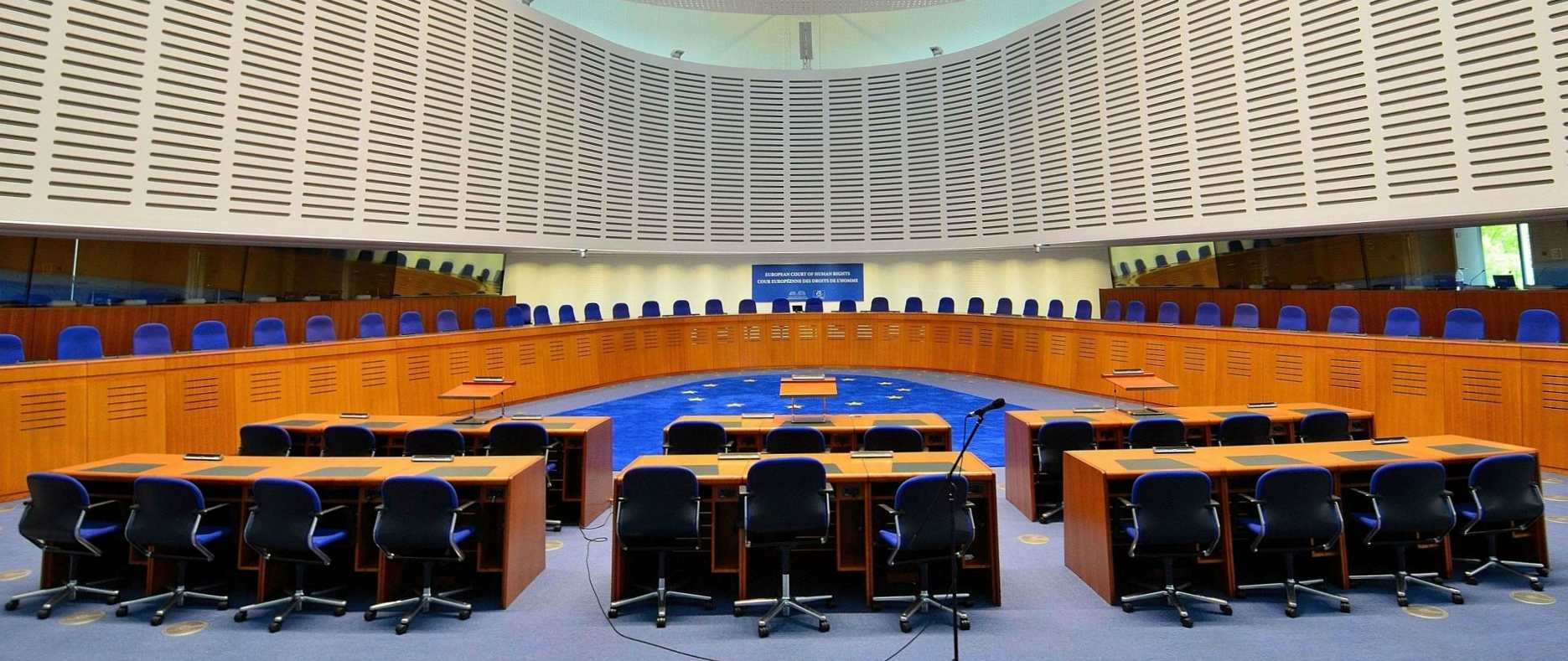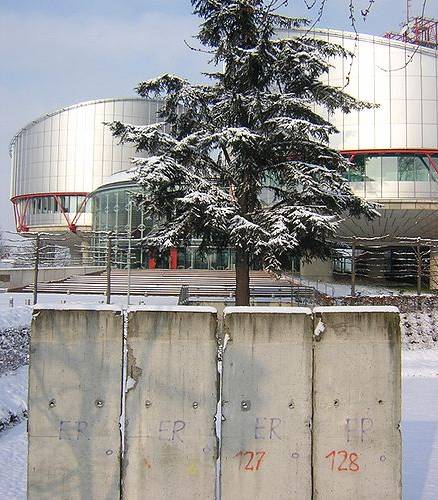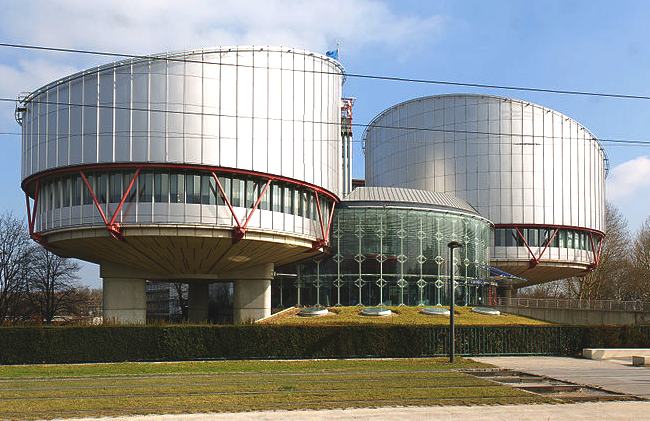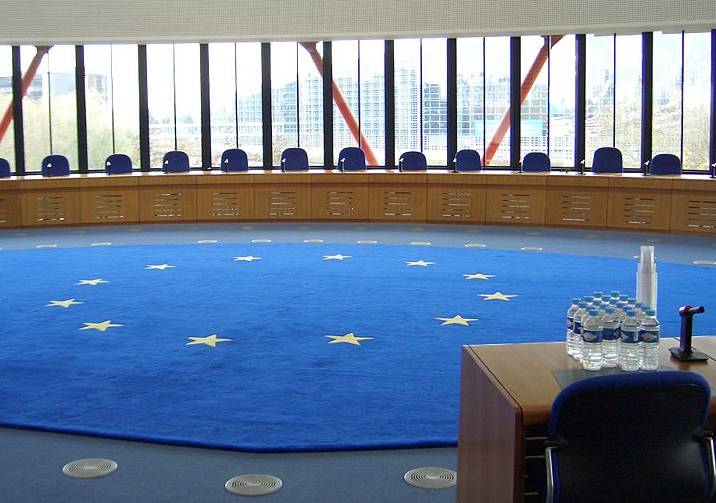|

.
Grand Chamber may refer to: The ultimate court of the European Court of Human Rights. A court of the European Court of Justice. The Supreme Court of Georgia (country) A historic court in the Parlement of Brittany.
Decisions of a chamber of the European Court of Human Rights can be referred by either party for reconsideration by the Grand Chamber. These referral applications are then decided upon by a panel of five judges, which decides whether they raise sufficiently ‘serious’ questions for the Grand Chamber to be convened. The process and principles by which the panel makes this decision are, however, somewhat opaque and rates of success in such referrals are very low. This paper builds on original analysis of referral patterns and interviews with judges of the European Court of Human Rights to assess what constitutes ‘seriousness’ in this context. The paper argues that this analysis suggests that seriousness in this context is best understood by reference to a developing constitutionalist identity on the part of the Grand Chamber, rather than to the perceived seriousness of an alleged rights violation per se, thus reinforcing the growing characterization of the Court as a constitutionalist tribunal for Europe.
When does the Grand Chamber hear a case?
The initiation of proceedings before the Grand Chamber takes two different forms: referral and relinquishment.
After a Chamber judgment has been delivered, the parties may request referral of the case to the Grand Chamber and such requests are accepted on an exceptional basis. A panel of judges of the Grand Chamber decides whether or not the case should be referred to the Grand Chamber for fresh consideration.
Cases are also sent to the Grand Chamber when relinquished by a Chamber, although this is also exceptional. The Chamber to which a case is assigned can relinquish it to the Grand Chamber if the case raises a serious question affecting the interpretation of the Convention or if there is a risk of inconsistency with a previous judgment of the Court.
How are Chambers and Grand Chambers formed?
A Chamber is composed of the President of the Section to which the case was assigned, the “national judge” (the judge elected in respect of the State against which the application was lodged) and five other judges designated by the Section President in rotation.
The Grand Chamber is made up of the Court’s President and Vice-Presidents, the Section Presidents and the national judge, together with other judges selected by drawing of lots. When it hears a case on referral, it does not include any judges who previously sat in the Chamber which first examined the case.
What are the main stages of the proceedings before the Court?
The Court must first examine whether your application is admissible. This means that the case must comply with certain requirements set out in the Convention. If the conditions are not satisfied, your application will be rejected. If you have made several complaints, the Court may declare one or more of them admissible and dismiss the others.
If your application or one of your complaints is declared inadmissible, that decision is final and cannot be reversed.
If your application or one of your complaints is declared admissible, the Court will encourage the parties (you and the State concerned) to reach a friendly settlement. If no settlement is reached, the Court will consider the application “on the merits” – that is, it will determine whether or not there has been a violation of the Convention.
How long do proceedings before the Court usually last?
It is impossible to indicate the length of proceedings before the Court.
The Court endeavours to deal with cases within three years after they are brought, but the examination of some cases can take longer and some can be processed more rapidly.
The length of the proceedings before the Court obviously varies depending on the case, the formation to which it is assigned, the diligence of the parties in providing the Court with information and many other factors, such as the holding of a hearing or referral to the Grand Chamber.
Some applications may be classified as urgent and handled on a priority basis, especially in cases where the applicant is alleged to be facing an imminent threat of physical harm.
Do judges sit in cases concerning their own country?
The composition of the bench always includes the “national judge”, whether it is a Chamber of 7 judges or a Grand Chamber of 17.
Can judgments be appealed against?
Whilst inadmissibility decisions and Grand Chamber judgments are final and cannot be appealed against, the parties have three months following the delivery of a Chamber judgment to request referral of the case to the Grand Chamber for fresh consideration.
Requests for referral are examined by a panel of judges which decides whether or not referral is appropriate.
Does the Court hold public hearings?
The Court basically has a written procedure but occasionally decides to hold public hearings in specific cases. Hearings take place in the Human Rights Building in Strasbourg. They are public unless otherwise decided by the President of the Chamber or Grand Chamber, as the case may be.
The press and the public are thus usually authorised to attend; they just need to show their press or identity card at the reception. All hearings are filmed and broadcast on the Court’s website on the day itself, from 2.30 p.m. (local time).


A
piece of the Berlin Wall in front of the ECHR
IS THE EUROPEAN COURT ACHIEVING ITS STATED AIMS ?
The system at the moment is not doing what it says on the can .........

CONTACTS
& LINKS
Please
note that the Court is likely to strike out your application without
giving any reasons.
European
Court of Human Rights
Council of Europe
67075 Strasbourg Cedex
France
Tel : +33 (0)3 88 41 20 18
Fax : +33 (0)3 88 41 27 30
ECHR
- YOUTUBE
IS THE EUROPEAN COURT ANY BETTER THAN THE NAZIS
ADMINISTRATION ?
The European Court routinely strikes out cases of injustice, in our view
making them party to the crime that results in any false conviction. For
example, the time that Mr Kruschandl spent
behinds bars can never be repaid to him and the perpetuation of his
sentence is a violation of the Universal
Declaration of Human Rights. The Council of Europe appear to have
forgotten what torture is and do not seem to mind that they are now part
of the problem. The repeated Gestapo
style attacks by his local authority and the attempts various at fit-ups
by Sussex Police, leading to disposal
of their adversary via one of the most despicable miscarriages of justice
we have investigated is shocking. The British system of justice is riddled
with Masons and their is no written Constitution to enable organizations
like the Criminal
Cases Review Commission to "take a view."
LINKS
& REFERENCE
https://www.coe.int/en/web/portal/home/
|


